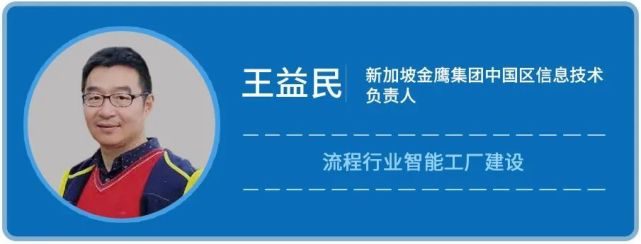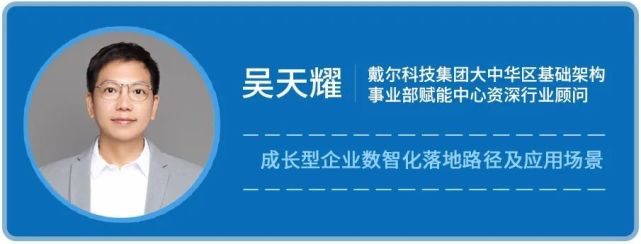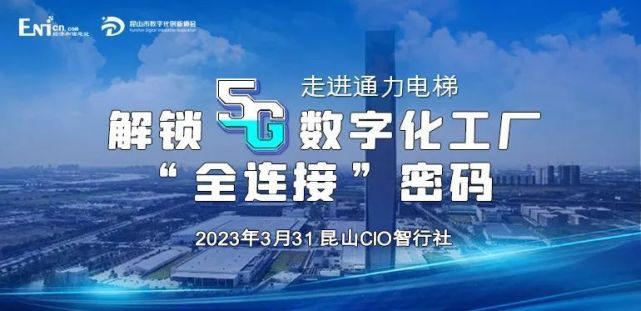How many stages are there in the construction of smart factory in process industry?
How to make the overall framework of IT planning when the growth enterprises are intellectualized?
Why do enterprises need process management, when do they do it, where do they start and how do they do it?
On March 8, 2023, in the CIO live broadcast room of "Planning Elements and Paths of Digital Intelligence Construction of Process Manufacturing" jointly sponsored by ENI Economic and Information Network and Dell Technology Group, Wang Yimin, head of information technology in China District of Singapore Golden Eagle Group, shared the stage, construction value and path of intelligent factory construction in process industry; Qiu Feng, an intelligent manufacturing expert of China Printing Machine Industry Association and an instructor of Beiyin Graduate School, shared enterprise process management in detail through five W1s. Wu Tianyao, a senior industry consultant of the Empowerment Center of the Infrastructure Division in Greater China of Dell Technology Group, demonstrated the value of innovative technology in the digital transformation of enterprises based on the solutions of Dell Technology Group and the sharing of cases.

"CPS is the essence of intelligent manufacturing". In the keynote speech of "Planning of Smart Factory in Process Industry", Wang Yimin, head of information technology in China District of Singapore Golden Eagle Group, introduced the key points of building smart factory in process industry from the aspects of real-time transparency of production process, standardized management of operation and traceability of the whole process.
The construction of intelligent factory is divided into three stages: digitalization and automatic control, networking and intelligence. Wang Yimin introduced that the digitization and automatic control stage is mainly to digitize scenes, environments, equipment, objects, processes and processes. At this stage, the key work of enterprises focuses on industrial sensor installation, industrial process data collection and industrial real-time data collection; When the enterprise enters the networking stage, it will be transformed into the construction of collection and transmission network, the integration of production software and hardware, the collaborative construction of bottom automation, the construction of internal and external high-speed data networking, and the construction of industrial internet and cloud; At the intelligent stage, the key points of enterprise’s smart factory construction will be reflected in digital twin technology construction, cloud computing big data construction, data visualization and artificial intelligence application, intelligent operation inside and outside the factory and product life cycle.

90% of manufacturing enterprises in China are small and medium-sized enterprises. In the keynote speech "The Path and Application Scenarios of Digital Intelligence for Growth Enterprises", Wu Tianyao, a senior industry consultant of Empowerment Center of Infrastructure Division in Greater China of Dell Science and Technology Group, introduced the overall framework of IT planning for digital intelligence for growth enterprises, and shared the Top Design Report, Architecture Design Report and Project Planning Report with guiding value.
As the world’s leading provider of consulting services and IT products, Dell Technology Group can help enterprises to establish a digital factory integrating R&D, procurement, manufacturing, storage and transportation, sales and service, and realize vertical integration of the factory and horizontal integration of the enterprise value chain. Through intelligent IT technology+intelligent IT service, and adopting unique methodology, the supply chain collaboration mode is designed to create a comprehensive digital factory transformation scheme.
In addition, Wu Tianyao also introduced Dell Streaming Data Platform–SDP, edge computing platform, and Dell technology AI-ready solutions. For growing enterprises, Dell Technology provides subscription-based IT consumption model APEX FOD, which enables enterprises to have better cash flow and face market competition more flexibly. Through the sharing of scene-based applications, Wu Tianyao introduced the best practice delivery of the underlying infrastructure (computing power, storage) of Dell Technology Group and the landing delivery of edge AI.

Excellent methods are not inherited, responsibilities and rights are unclear, there are standards, and there is no solidification.
Why should an enterprise carry out process management, when, where to start and how to do it. In the next speech, Qiu Feng, an intelligent manufacturing expert of China Printing Machine Industry Association and an instructor of North India Graduate School, introduced why enterprises should do process management from three aspects: employees, enterprises and customers. At the same time, according to the characteristics of the development of enterprise growth life cycle, it was pointed out that it was not necessary to do process management at the stage of enterprise’s pioneering stage, but when the enterprise further developed and its scale gradually expanded into the development stage, it needed standardized operation. After entering the mature stage, the response of enterprise management is slow, and this stage needs to be optimized and rebuilt.
When talking about how to carry out process management, Qiu Feng shared it with the ring structure of planning, design, execution and optimization. He mentioned that when planning, enterprises need to investigate and analyze the pain points, identify the process list and priority, and formulate the process combing plan and project mechanism according to the actual situation of enterprises. In the implementation stage, it is necessary to publicize the process and coach employees to implement it, analyze the timeliness of process nodes, and collect the problems of process audit and operation.
After decades of development, the process industry, which is mainly composed of chemical industry, foundry, cement and biopharmaceuticals, has achieved great improvement in production technology, equipment and production process automation, but its overall development is still relatively extensive. How to solve the current challenges through reasonable digital intelligence planning and practice, and what new opportunities and scenarios will be provided by new digital technologies such as industrial internet, IoT and AI for digital intelligence in the industry are also the current concerns of enterprises.

We are innovative porters.
关于作者